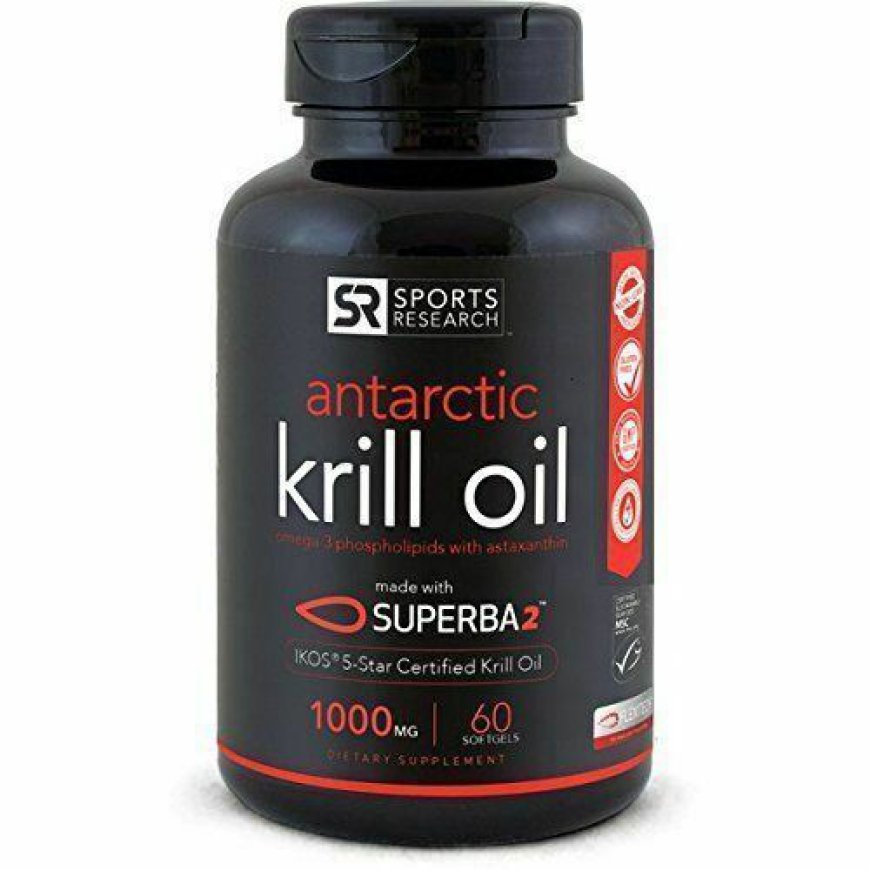How Antarctic Krill Oil Boosts Heart Health Naturally
In recent years, the health benefits of marine oils have gained significant attention, particularly the oil derived from Antarctic krill.

In recent years, the health benefits of marine oils have gained significant attention, particularly the oil derived from Antarctic krill. Krill are small, shrimp-like crustaceans found in the cold waters of the Antarctic Ocean. Rich in omega-3 fatty acids and antioxidants, Antarctic krill oil has emerged as a natural supplement that supports heart health. This article will explore how Antarctic krill oil promotes cardiovascular well-being and its other health benefits.
Understanding Antarctic Krill Oil
Antarctic krill oil is extracted from the tiny krill species known as Euphausia superba. This oil is known for its high concentration of omega-3 fatty acids, specifically eicosapentaenoic acid (EPA) and docosahexaenoic acid (DHA). Unlike fish oil, which is another popular source of omega-3s, krill oil contains a unique antioxidant called astaxanthin, which contributes to its vibrant red color. Astaxanthin is known for its anti-inflammatory properties and helps protect the oil from oxidation, ensuring its freshness and efficacy.
Omega-3 Fatty Acids: The Heart’s Best Friend
Omega-3 fatty acids are essential fats that play a crucial role in heart health. They help lower levels of triglycerides, reduce inflammation, and improve overall cardiovascular function. Studies suggest that regular intake of omega-3 fatty acids can significantly decrease the risk of heart disease.
Antarctic krill oil contains both EPA and DHA, which are known to support heart health in several ways:
1. Reducing Inflammation: Chronic inflammation is a leading contributor to heart disease. The omega-3s in krill oil help lower inflammatory markers in the body, which can reduce the risk of cardiovascular issues.
2. Improving Cholesterol Levels: Krill oil has been shown to increase high-density lipoprotein (HDL) cholesterol, often referred to as “good” cholesterol. Higher HDL levels are associated with a lower risk of heart disease.
3. Regulating Blood Pressure: Some studies indicate that omega-3 fatty acids may help lower blood pressure, reducing strain on the heart and arteries.
4. Preventing Blood Clots: The blood-thinning properties of omega-3s can help prevent the formation of blood clots, decreasing the likelihood of heart attacks and strokes.
Astaxanthin: A Powerful Antioxidant
Astaxanthin, the antioxidant found in krill oil, plays a vital role in protecting the heart. It combats oxidative stress, a condition caused by an imbalance between free radicals and antioxidants in the body. Oxidative stress can lead to various cardiovascular problems, including the development of atherosclerosis (hardening of the arteries).
Research indicates that astaxanthin may enhance cardiovascular health by:
- Improving Blood Flow: Astaxanthin can promote the production of nitric oxide, a molecule that helps relax blood vessels and improve circulation.
- Reducing Oxidative Damage: By neutralizing free radicals, astaxanthin can protect heart cells from damage and support overall heart function.
Supporting Weight Management
Maintaining a healthy weight is crucial for heart health. Antarctic krill oil may aid in weight management efforts by promoting healthy metabolism and reducing inflammation. Some studies suggest that omega-3s can help decrease body fat, especially around the abdomen. A healthy weight can reduce the strain on the heart and lower the risk of heart disease.
How to Incorporate Antarctic Krill Oil into Your Diet
Adding Antarctic krill oil to your daily routine is straightforward. It is available in various forms, including softgel capsules and liquid oil. When choosing a krill oil supplement, consider the following tips:
1. Quality Matters: Look for high-quality krill oil from reputable brands that undergo third-party testing to ensure purity and potency.
2. Recommended Dosage: While individual needs may vary, a common dosage is 500 to 1000 milligrams per day. Consult with a healthcare professional to determine the appropriate amount for your specific needs.
3. Combine with a Healthy Diet: To maximize the benefits of krill oil, combine it with a balanced diet rich in fruits, vegetables, whole grains, and lean proteins. Foods high in omega-3s, such as fatty fish, walnuts, and flaxseeds, can complement the effects of krill oil.
4. Stay Active: Regular physical activity is essential for heart health. Aim for at least 150 minutes of moderate aerobic exercise each week to support overall cardiovascular well-being.
Potential Side Effects and Precautions
While Antarctic krill oil is generally considered safe for most people, some individuals may experience mild side effects, including:
- Gastrointestinal discomfort
- Fishy aftertaste
- Allergic reactions in individuals allergic to shellfish
If you are pregnant, nursing, or taking medications, especially blood thinners, consult with your healthcare provider before adding krill oil to your routine.
Conclusion
Antarctic krill oil is a powerful natural supplement that can significantly boost heart health. Its rich omega-3 fatty acid content, combined with the antioxidant properties of astaxanthin, offers numerous cardiovascular benefits, including reducing inflammation, improving cholesterol levels, and enhancing blood flow. Incorporating krill oil into a healthy lifestyle can be an effective way to promote heart health and overall well-being. Always consult with a healthcare professional before starting any new supplement to ensure it aligns with your health goals.
Lear more info: Marine Conservation projects

 authorpost
authorpost